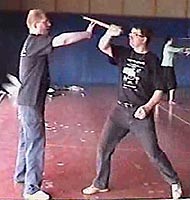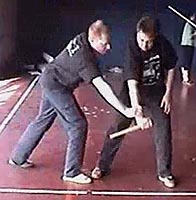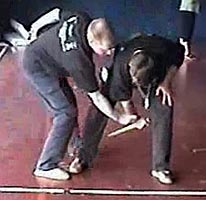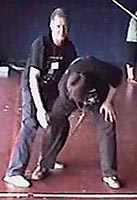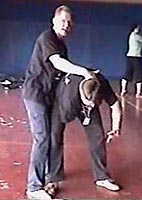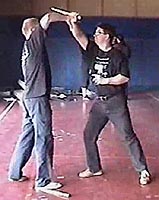
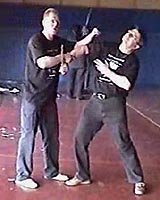
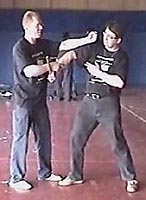
twist the dagger out of his hand, punch his face
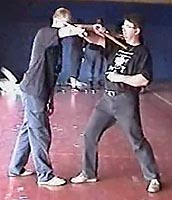
deflect and stab
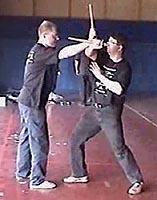
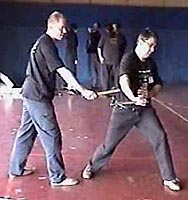
punch aside his attack and stab low
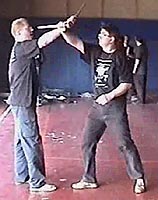
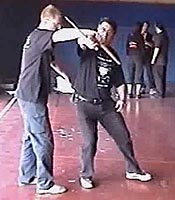
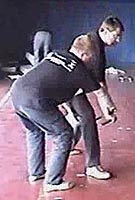
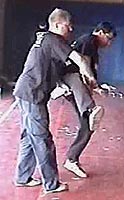
lift the leg and throw (his dagger hand is caught along with the leg)
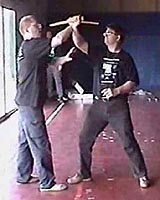
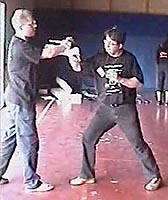
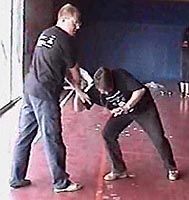
the scissors
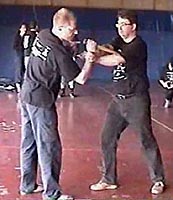
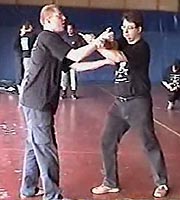
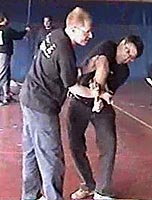
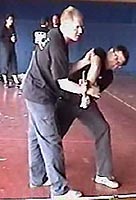
the first counter to the scissors
The right hand should be like on the left after this, however three of the four sources show the hand as on the right:
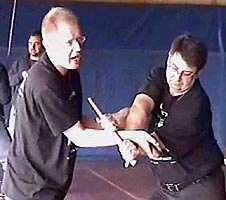
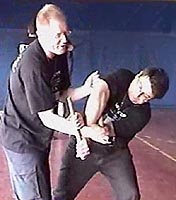
We came up with two possible explanations. The first is that the counter is shown for a scissors against this attack:
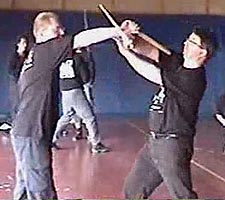
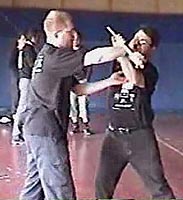
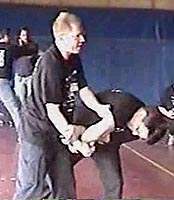
The second is that the hand is turned during the technique, which isn't difficult since the enemy's own arm provides a support for our dagger:
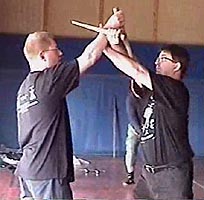
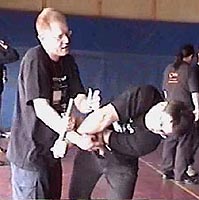
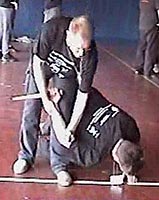
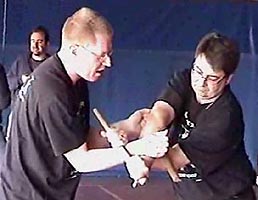
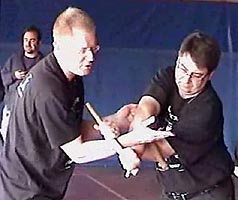
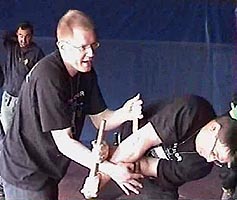
detail view
The second counter to the scissors: transfer the dagger to the other hand and stab:
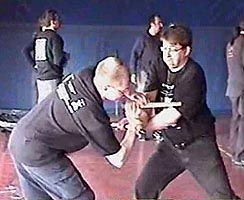
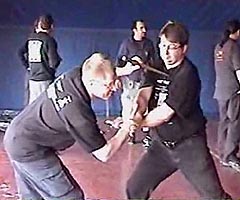
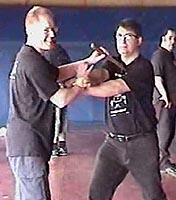
A deflection with the scissors (dangerous to practice without masks):
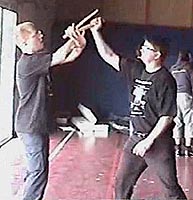
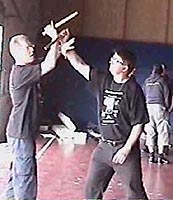
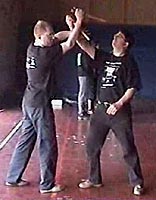
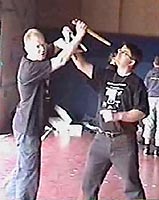
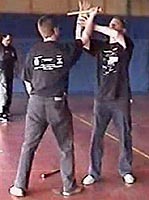
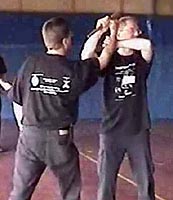
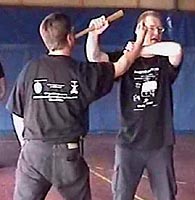
scissors deflection, unarmed
Wrapping the dagger around the elbow and pushing it down:
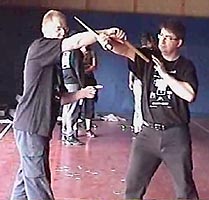
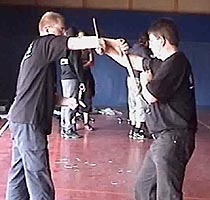
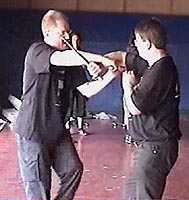
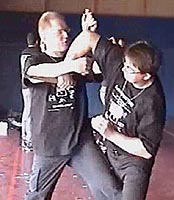
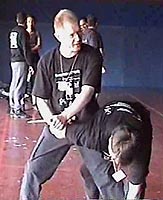
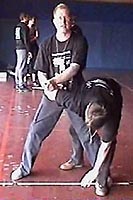
My interpretation of Talhoffer's throw:
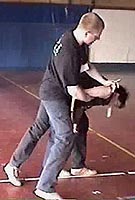
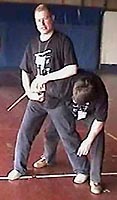
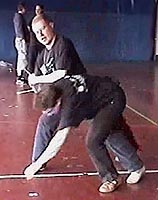
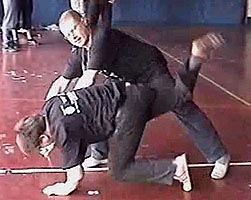
step between the enemy's legs with your left foot, turn your hips and step forward
with the right foot, making him fall over your left leg
Pressing on the elbow:
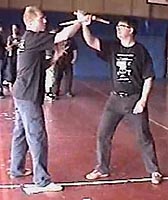
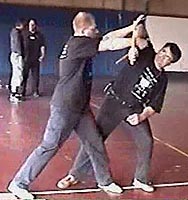
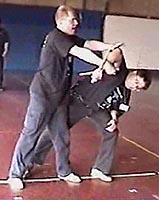
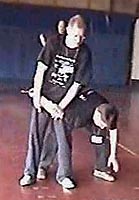
We speculate that from the bind, the enemy may want to try to turn aside and stab low:
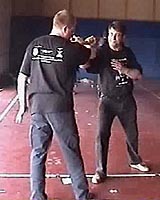
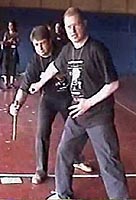
Controlling his wrist and elbow counters this
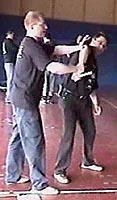
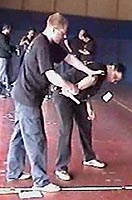
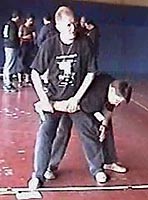
elbow push, without dagger
The manuals show two counters to the elbow push. The first throws the enemy over the shoulder:
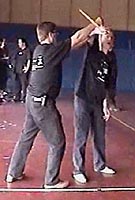
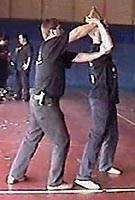
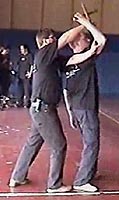
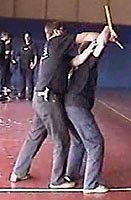
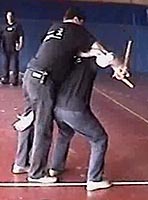
turn in front of him, under your hands
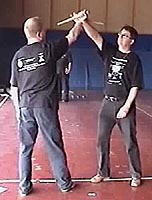
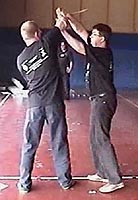
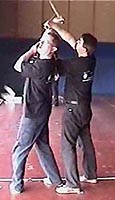

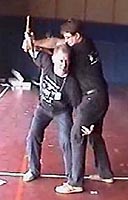
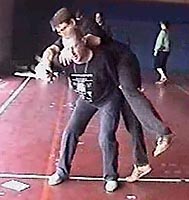
seen from the other side
In the other counter you step behind him and throw him over your hip:
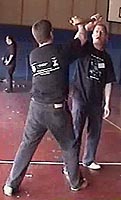
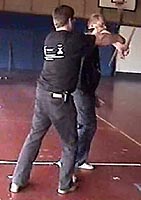
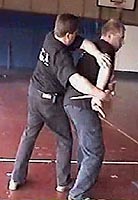
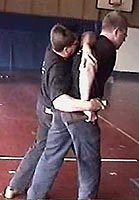
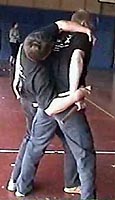
this is the footwork shown in the manual
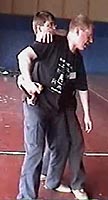
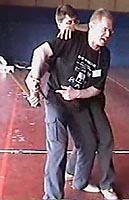
note that I like to trap the enemy's dagger against my hip, but this isn't supported
by the sources
While pushing on the elbow, the enemy will want to step forward. The manuals show you stepping behind him before he can do that, but the following shows that the technique still works after he has stepped forward with the left foot:
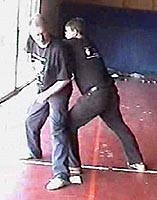
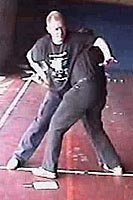
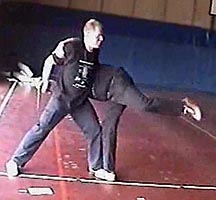
the enemy's feet are the reverse from the manual
The grosser worff, where you place your weight on his shoulder and reach down:
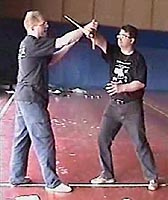
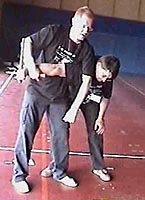
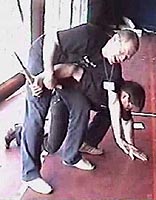
then you throw up your feet and fall on him
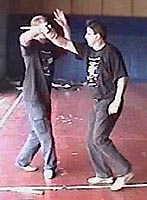
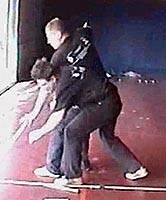
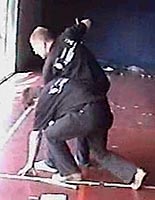
unarmed, in dynamic motion, with enemy strongly pushing forward
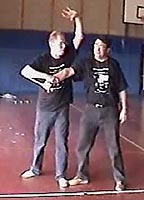
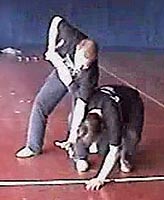
the manuals make clear this is a technique on the shoulder, not the elbow
The following armlock is a bit awkward to get into in normal circumstances, but it works great when the enemy draws back during the set-up of grosser worff:
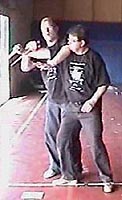
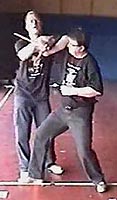
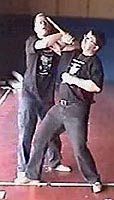
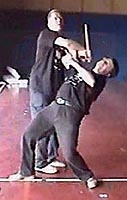
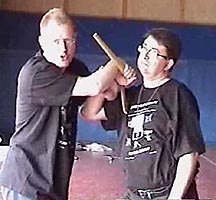
your left hand is on your right forearm
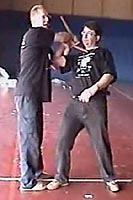
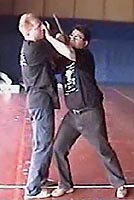
the counter: grab the face
The next technique has a discrepancy between the drawng and the caption. An attack from above is specified, but then our right arm ends up different from the drawing:
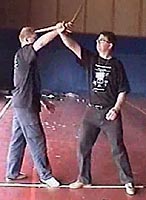
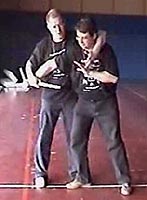
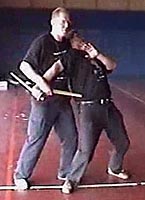
Against an inverted low stab, we end up in the right position. This is also very similar to a technique in Marozzo's Opera Nova (where you pull the enemy's beard):
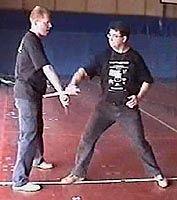
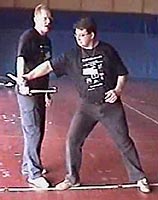
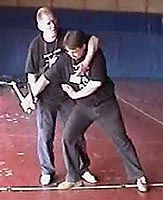
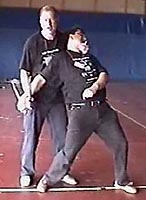
(note the opening to finish the enemy with a low stab)
For the following technique, only the ending is shown, without caption, and no daggers are visible. So our reconstruction is highly speculative:
